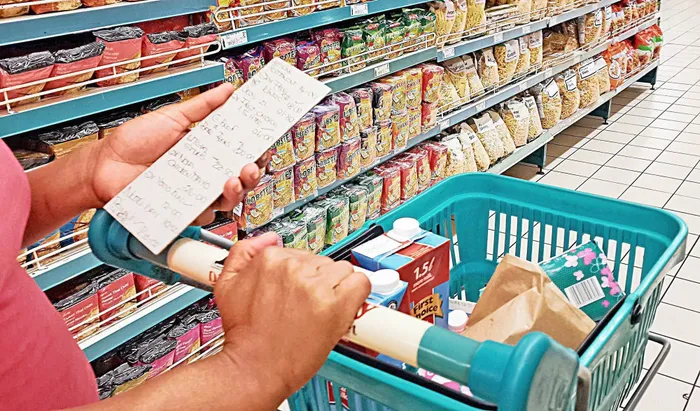
This result aligns with consensus expectations, according to Investec economist Lara Hodes, and reflects a variety of price adjustments across multiple sectors during a busy survey month.
Image: File photo
In a notable yet modest shift, South Africa's Consumer Price Index (CPI) inflation rate increased by 0.2% month-on-month in September, bringing the annual figure to 3.4%, up from 3.3% recorded in August.
This result aligns with consensus expectations, according to Investec economist Lara Hodes, and reflects a variety of price adjustments across multiple sectors during a busy survey month.
The slight uptick in inflation can primarily be attributed to increases in the housing and utilities, as well as restaurant and accommodation services sectors, which together form part of the broader CPI basket.
Interestingly, the petrol price saw minimal movement, with only a 4 cents per litre reduction, resulting in negligible impact on the transport component of the CPI.
Early October also recorded a minor change, reaffirming expectations for limited inflationary pressure from fuel prices in the near future.
Food price inflation, a key indicator for many South African households has shown a welcome easing, dropping to 4.4% year-on-year in September, down from 5.2% the previous month.
The food and non-alcoholic beverages category, accounting for nearly 17% of the CPI index, contributed 0.8% to the annual headline reading.
This reduction is consistent with recent trends in international agricultural commodity prices, which fell by over 2% month-on-month in September, as reported by the Economist commodity food price index.
Additionally, the rand's 1.5% month-on-month appreciation has bolstered the local market's capacity to moderate rising prices.
However, not all components within the food basket are experiencing reprieve.
Meat prices, which represent a significant weight in the inflation calculations, saw a modest increase amidst ongoing constraints caused by foot-and-mouth disease outbreaks.
Meanwhile, cereal product inflation remained stable at 1.6% year-on-year, slightly up from 1.5%. On a positive note, the Agricultural Business Chamber (Agbiz) has indicated that South Africa's 2024-25 harvests are expected to be robust, buoyed by favorable summer rains and increased planting areas, forecasting a promising rise of over 25% year-on-year in summer grains and oilseed production.
Core CPI inflation, which excludes volatile items such as food and non-alcoholic beverages as well as fuel and energy costs, saw a slight increase as well, moving from 3.1% to 3.2% year-on-year.
As South Africans contend with the impacts of inflation on their daily lives, the recent data offers a mixed bag of insights, underpinned by both caution and optimism.
With supportive global trends and improved agricultural yields, the pathway forward for inflation management remains a pivotal topic for economists and policymakers alike.
BUSINESS REPORT